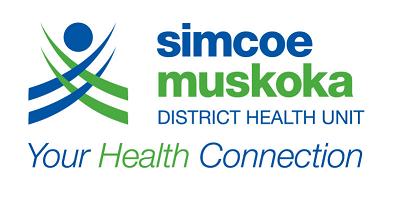The Simcoe Muskoka District Health Unit (SMDHU) has received confirmation that a resident of Simcoe Muskoka has tested positive for measles. The person who has a confirmed case of measles is an adult who has not travelled recently or been in contact with a known case of measles. SMDHU is reaching out to known contacts who may have been exposed.
The public may have been exposed at the following locations:
Monday, March 4
- 8:30 a.m. – 6:30 p.m. Simcoe Muskoka District Health Unit, 2-25 King St. South, Cookstown
Tuesday, March 5
- 8:30 a.m. – 2:30 p.m. Simcoe Muskoka District Health Unit, 2-25 King St. South, Cookstown
- 12:00 p.m. – 3:00 p.m. Walmart Supercentre, 30 Dunham Dr., Alliston
Thursday, March 7
- 8:30 a.m. – 12:00 p.m. Queens Medical Health Centre, 238 Barrie St., Thornton
- 9:00 a.m. – 12:00 p.m. Sobeys, 247 Mill St., Angus
Friday, March 8
- 11:30 a.m. – 2:30 p.m. Moon Flour Bakery, 4 Massey St., Angus
- 11:30 a.m. – 2:30 p.m. Freshii, 285 Mill St. Unit #3, Angus
- 4:00 p.m. – 6:30 p.m. Collingwood General & Marine Hospital Emergency Department, 459 Hume St., Collingwood
SMDHU advises anyone who believes they may have been exposed to the measles virus to do the following:
- Notify the Simcoe Muskoka District Health Unit of your exposure by calling Health Connection at 705-721-7520 or 1-877-721-7520 Monday to Friday between 8:30 a.m. to 7 p.m.. Confirm that you and your family members have two doses of measles vaccine (MMR or MMRV); those born before 1970 would likely have had measles illness as a child and are protected. Those not protected against measles with these measures should contact their health care provider or Health Connection at 705-721-7520 or 1-877-721-7520 regarding vaccination.
- If you develop symptoms, stay home and do not attend work or school; call your health care provider before going to be seen to inform them that you may have measles and require additional precautions.
- Anyone who was at a location of possible exposure during the identified date and time AND is immunocompromised or unimmunized (including children under the age of one), or pregnant should contact Health Connection at 705-721-7520 or 1-877-721-7520 to assess eligibility and need for post-exposure treatment.
Measles is a highly contagious viral infection that spreads very easily through airborne transmission. The measles virus can live in the air or on surfaces for up to two hours. Symptoms of measles begin seven to 21 days after exposure and include fever, runny nose, cough, drowsiness, and red eyes. Small white spots appear on the inside of the mouth and throat but are not always present. Three to seven days after symptoms begin, a red, blotchy rash appears on the face and then progresses down the body. The risk of transmission to those vaccinated with two doses is low, and when it does occur tends to show a reduction in the severity of these symptoms.
“The risk of measles is low for people who have been fully immunized with two doses of measles vaccine or those born before 1970; however, many children have been delayed in receiving their routine childhood immunizations including the measles, mumps and rubella (MMR) vaccine and people who have not had two doses of measles vaccine are at higher risk of contracting the disease,” said Dr. Gardner, SMDHU medical officer of heath.
People who do get sick usually recover without treatment, but measles can be more severe for infants, pregnant women, and those with compromised immune systems. Possible complications include middle ear infections, pneumonia, diarrhea, or encephalitis (swelling of the brain) and occasionally death in the very young. Even individuals who are up to date with the measles vaccine should watch for symptoms of measles for 21 days after exposure.
The health unit is advising individuals and families to ensure they are up to date with their measles vaccines and to remain watchful for symptoms even if vaccinated against measles.
For more information about measles, please visit smdhu.org or call Health Connection at 705-721-7520 or 1-877-721-7520, Monday to Friday between 8:30 a.m. to 7 p.m. to speak with a public health professional.








